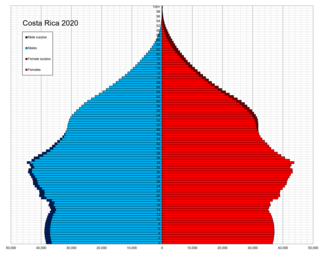
This is a demographic article about Costa Rica's population, including population density, ethnicity, education level, health of the populace, economic status, religious affiliations, and other aspects of the population.

The Dominican Republic is a country on the island of Hispaniola in the Greater Antilles archipelago of the Caribbean Sea, bordered by the Atlantic Ocean to the north. Geographically, the Dominican Republic is part of the North American continent. It occupies the eastern five-eighths of the island, which it shares with Haiti, making Hispaniola one of only two Caribbean islands, along with Saint Martin, that is shared by two sovereign states. It is the second-largest nation in the Antilles by area at 48,671 square kilometers (18,792 sq mi), and second-largest by population, with approximately 11.4 million people in 2024, of whom approximately 3.6 million live in the metropolitan area of Santo Domingo, the capital city.
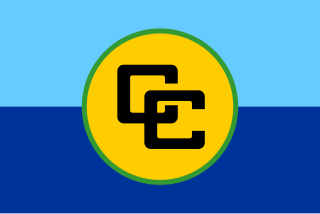
The Caribbean Community is an intergovernmental organisation that is a political and economic union of 15 member states and five associated members throughout the Americas, The Caribbean and Atlantic Ocean. It has the primary objective to promote economic integration and cooperation among its members, ensure that the benefits of integration are equitably shared, and coordinate foreign policy. The organisation was established in 1973, by its four founding members signing the Treaty of Chaguaramas. Its primary activities involve:

The Inter-American Development Bank is an international development finance institution headquartered in Washington, D.C., United States of America, and serving as the largest source of development financing for Latin America and the Caribbean. Established in 1959, the IDB supports Latin American and Caribbean economic development, social development and regional integration by lending to governments and government agencies, including State corporations.
Indo-Caribbeans or Indian-Caribbeans are people in the Caribbean who are descendants of the Jahaji indentured laborers from India and the wider subcontinent, who were brought by the British, Dutch, and French during the colonial era from the mid-19th century to the early 20th century. A minority of them are descendants from people who immigrated as entrepreneurs, businesspeople, merchants, engineers, doctors, religious leaders, students, and other professional occupations beginning in the mid-20th century.
Latin Americans are the citizens of Latin American countries.
The history of the Jews in Latin America began with conversos who joined the Spanish and Portuguese expeditions to the continents. The Alhambra Decree of 1492 led to the mass conversion of Spain's Jews to Catholicism and the expulsion of those who refused to do so. However, the vast majority of conversos never made it to the New World and remained in Spain slowly assimilating to the dominant Catholic culture. This was due to the requirement by Spain's Blood Statutes to provide written documentation of Old Christian lineage to travel to the New World. However, the first Jews came with the first expedition of Christopher Columbus, including Rodrigo de Triana and Luis De Torres.
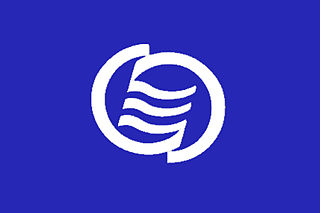
The Association of Caribbean States is an advisory association of nations centered on the Caribbean Basin. It was formed with the aim of promoting consultation, cooperation, and concerted action among all the countries of the Caribbean coastal area. The primary purpose of the ACS is to promote greater trade between the nations, enhance transportation, develop sustainable tourism, and facilitate greater and more effective responses to local natural disasters.

The United States has a racially and ethnically diverse population. At the federal level, race and ethnicity have been categorized separately. The most recent United States census recognized five racial categories, as well as people who belong to two or more of the racial categories. The United States also recognizes the broader notion of ethnicity. The 2000 census and 2010 American Community Survey inquired about the "ancestry" of residents, while the 2020 census allowed people to enter their "origins". The Census Bureau also classified respondents as either Hispanic or Latino, identifying as an ethnicity, which comprises the minority group in the nation.

ALBA or ALBA–TCP, formally the Bolivarian Alliance for the Peoples of Our America or the Bolivarian Alliance for the Peoples of Our America – Peoples' Trade Treaty, is an intergovernmental organization based on the idea of political and economic integration of Latin American and Caribbean countries.

Haitian Americans are a group of Americans of full or partial Haitian origin or descent. The largest proportion of Haitians in the United States live in Little Haiti to the South Florida area. In addition, they have settled in major Northeast cities such as New York City, Boston, Philadelphia, Baltimore and Washington, D.C., and in Chicago and Detroit in the Midwest. Most are immigrants or their descendants from the mid-late 20th-century migrations to the United States. Haitian Americans represent the largest group within the Haitian diaspora.

Jamaican Americans are an ethnic group of Caribbean Americans who have full or partial Jamaican ancestry. The largest proportions of Jamaican Americans live in South Florida and New York City, both of which have been home to large Jamaican communities since the 1950s and the 1960s. There are also communities of Jamaican Americans residing in Connecticut, Georgia, New Jersey, Pennsylvania, Maryland, Massachusetts, and California.

Caribbean Americans or West Indian Americans are Americans who trace their ancestry to the Caribbean. Caribbean Americans are a multi-ethnic and multi-racial group that trace their ancestry further in time mostly to Africa, as well as Asia, the Indigenous peoples of the Americas, and to Europe. As of 2016, about 13 million — about 4% of the total U.S. population — have Caribbean ancestry.

Haiti has a sizable diaspora, present primarily in the United States, Panama, Dominican Republic, Cuba, Canada, France, the Bahamas, Peru, Ecuador, Colombia, Brazil and Chile. They also live in other countries like Costa Rica, Mexico, Bolivia, Guatemala, Nicaragua, Honduras, Venezuela, Argentina, Barbados, Guyana, Belgium, Switzerland, Turks and Caicos, among others.
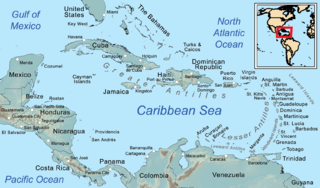
The Caribbean is a subregion of the Americas that includes the Caribbean Sea and its islands, some of which are surrounded by the Caribbean Sea and some of which border both the Caribbean Sea and the North Atlantic Ocean; the nearby coastal areas on the mainland are sometimes also included in the region. The region is south-east of the Gulf of Mexico and Northern America, east of Central America, and north of South America.
BarbadianAmericans are Americans of full or partial Barbadian heritage. The 2000 Census recorded 53,785 US residents born on the Caribbean island 52,170 of whom were born to non-American parents and 54,509 people who described their ethnicity as Barbadian. The 2010 US Census estimation report stated more than 62,000 Barbadian Americans are resident in the United States, most of whom are in the area of New York City extending from Rhode Island to Delaware. In past years, some also moved to the areas of Chicago, Illinois, and Boston, Massachusetts.
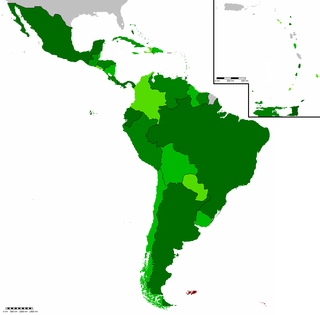
The Community of Latin American and Caribbean States (CELAC) is a regional bloc of Latin American and Caribbean states proposed on February 23, 2010, at the Rio Group–Caribbean Community Unity Summit, and created on December 3, 2011, in Caracas, Venezuela, with the signing of the Declaration of Caracas. It consists of 33 countries in Latin America and the Caribbean and has five official languages.
Guyanese Americans are American people with Guyanese ancestry or immigrants who were born in Guyana. Guyana is home to people of many different national, ethnic and religious origins. As of 2019, there are 231,649 Guyanese Americans currently living in the United States. The majority of Guyanese live in New York City – some 140,000 – making them the fifth-largest foreign-born population in the city.

Islam is a minority religion in all of the countries and territories of the Americas, around 1% of North America population are Muslims, and 0.1% of Latin America and Caribbean population are Muslims.

The history of the Jews in Paraguay has been characterised by migration of Jewish people, mainly from European countries, to the South American nation, and has resulted in the Jewish Paraguayan community numbering 1,000 today.















